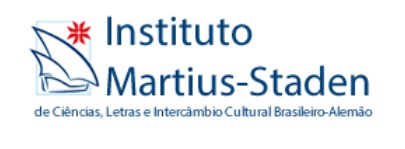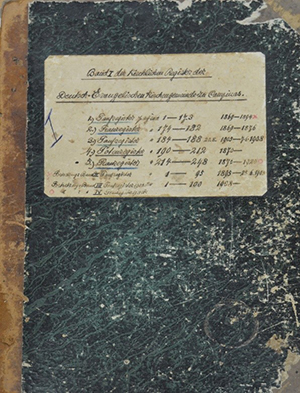Instituto Martius-Staden in Sao Paulo

About:
Founded in 1938, the Martius-Staden Institute is a non-profit entity maintained by the Visconde de Porto Seguro Foundation. Its mission is to preserve the traditions of German culture in Brazil and value them in the contemporary context, contributing to the strengthening of cultural ties between Brazil and Germany and stimulating cultural and scientific exchange through the promotion of events.
In this sense, among the various actions it promotes, it regularly launches publications and traveling exhibitions dedicated to German immigration and cultural relations between the two countries.
The Martius-Staden Institute maintains a German immigration collection that has become a reference for those researching the history of immigrants from German-speaking countries and their genealogy: there are more than 140 thousand biographical data, more than 200 thousand documents and 55 thousand volumes of books and magazines. The Institute also has one of the largest collections of German newspapers published in Brazil.
Contact Information:
- Website: www.martiusstaden.org.br/Home.aspx
- Facebook: www.facebook.com/martiusstaden
- Instagram: www.instagram.com/martiusstaden/
- YouTube: www.youtube.com/channel/UCNhdRyzn56AXALb8Aq7IPXQ
- Spotify: open.spotify.com/show/7KmlcCXFmYi2ZCx8RVTKJw?si=SC7Cj69aSUKLz3SBBEneKA&nd=1&dlsi=672e219079f94a88
- Email: contato@martiusstaden.org.br
Mailing Address
Rua Itapaiúna, 1355, Panamby
São Paulo, SP, Brasil CEP 05707-000
Contact language: Portuguese, English
Type:
Cultural Association and Resource Collection
Purpose:
Membership:
There is always interest in donations of books about German immigration to Brazil, as well as personal documents such as letters, birth, marriage and death certificates, health and school cards, diaries, photographs, among other items of a personal or historical nature. . We also accept copies of the original.
A historical archive on German immigration is a living, breathing collection and depends on new information and materials to remain relevant. Furthermore, facts, documents and memories that would otherwise fall into oblivion gain life and historical importance. Therefore, it is essential that we receive donations from German-speaking families.
Anyone wishing to donate material or make a financial contribution can contact the archive through the following channels:
E-mail: Arquivo@martiusstaden.org.br
Benefits:
As there are no membership fees all resources of the Institute are available. These resources include:
Immigration Collection
The Martius-Staden Institute maintains a collection on German immigration that has become a reference for those researching the history of immigrants from German-speaking countries and their genealogy: there are more than 140 thousand biographical data and more than 200 thousand documents and photographs, in addition to 55 thousand volumes of books and magazines
German Newspapers
It has one of the largest collections of German newspapers published in Brazil. Some of these periodicals have been digitized and are available for consultation in the Unesp digital library.
Genealogy
Currently, a large part of the public that visits the Institute’s archives is made up of people who dedicate part of their time to searching for the history of their family members and their own, or of their place of affection. Therefore, it is not surprising that the genealogical history and local history aspects are those that have grown the most in recent years, generating a large number of biographies and books about important places and dates. Sometimes the search for family history has legal purposes (citizenship application); others, affective (rescue of family memory) and even historical.
 In total there are more than 20,000 data on baptisms, marriages, deaths and confirmations from 1869 onwards (some records from 1864 onwards). The data and information cover several regions, cities and municipalities, such as: Campinas, Valinhos, Limeira, Rio Claro, Pirassununga, Santos, São Paulo, Itu, São José dos Campos, Piracicaba, São Bernardo do Campo, Leme, Louveira, São Carlos, Araras, Ribeirão Preto, Sorocaba, Botucatu, Jundiai, etc.
In total there are more than 20,000 data on baptisms, marriages, deaths and confirmations from 1869 onwards (some records from 1864 onwards). The data and information cover several regions, cities and municipalities, such as: Campinas, Valinhos, Limeira, Rio Claro, Pirassununga, Santos, São Paulo, Itu, São José dos Campos, Piracicaba, São Bernardo do Campo, Leme, Louveira, São Carlos, Araras, Ribeirão Preto, Sorocaba, Botucatu, Jundiai, etc.
